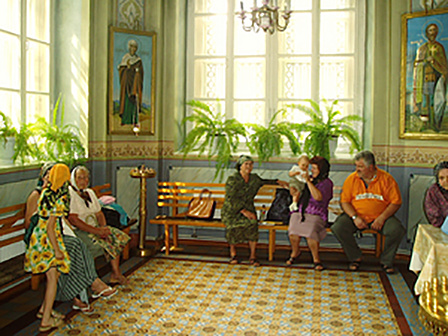Moldovan nationals with a biometric passport can travel to the EU without a visa (Photo: Guttorm Flatabo)
“This is a great achievement and the beginning of a new chapter in our relations,” said EU home affairs commissioner Cecilia Malmstrom in a statement.
The visa will be lifted at the end of the month.
Moldovans will be able to travel freely throughout the Schengen area for short trips so long as they have a biometric passport.
Conditions attached to the visa waiver required the country to reform its ministry of interior, modernise its border police, work closer with the EU on police matters, and manage its border with Ukraine.
Moldova, for its part, sees the move as a step towards deeper relations with the EU and possibly one day joining the Union.
“I want to tell the sceptics, who until recently have not believed that we will travel freely to the European Union, that the prospect of joining the European Union will be recognised in the same way,” Moldova’s prime minister Iurie Leanca said in a speech to the parliament in Chisinau on Thursday.
Last November, the government initialled a free trade and political pact with the EU in a wider effort to modernise the former Soviet republic.
Chisinau’s move towards the EU was met with threats from Putin’s special representative to Moldova’s Russian-occupied breakaway region of Transniestria, Dmitry Rogozin.
Rogozin in late 2013 said Moldova could lose the breakaway if it continued to seek closer ties with the EU.
In February, the autonomous region of Gagauzia voted in favour of joining the Russia-led Customs Union. Authorities in Chisinau called the referendum illegal.
Putin’s annexation of the Crimea has since heighted tensions in the region with Transniestria now wanting to join Russia.
Russia has some 1,200 troops, which it describes as peacekeepers, along a 12-20km wide buffer zone that separates Moldova and Transniestria.
Nato in late March also warned the country could become Russia’s next target, with Leanca telling Reuters that Crimea’s annexation “might raise expectations” in Moldova's separatist region.
Despite the tensions, Leanca says Chisinau intends to maintain an open dialogue and relations with Russia.
He noted that his deputy prime minster Natalia Gherman would be on an official visit in Moscow on Friday.
Russia is also set to send its envoy.
Gherman told media Russian Foreign Minister Sergei Lavrov is scheduled to visit the Moldovan capital at the end of the month.




